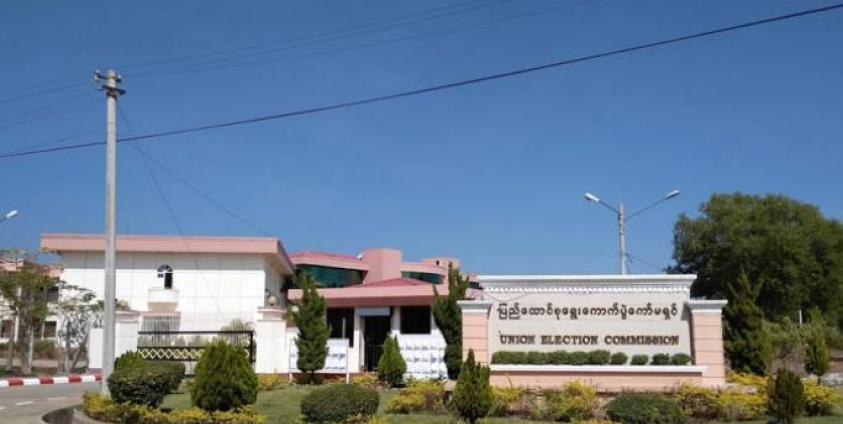By 17 March, 27 Myanmar political parties had applied to officially register as political parties under the junta’s new Political Parties Registration Act.
Of those 27 parties, seven parties, including the pro-junta Union Solidarity and Development Party (USDP), will contest elections nationally, whilst the remaining 20 parties will only compete in certain regional or state elections, according to reports in junta-controlled newspapers.
Previously, on 26 January, the junta-appointed Union Election Commission (UEC) released the new Political Parties Registration Act which will apply to any political party that wishes to contest the 2023 elections.
Even existing political parties that were previously registered must re-apply to the UEC for registration, under Article 25 of the new Political Parties Registration Act. This states that any political party that does not apply for re-registration will automatically be de-registered or not registered as a political party. These rules apply to new political parties as well as already established, registered parties.
In mid-March, the parallel Myanmar National Unity Government (NUG) said that the parties that emerge victorious from the junta's proposed election will not truly represent the people, but rather be puppets of the terrorist military junta.
Many people are apprehensive about the formation and registration of political parties because they do not believe that the junta’s upcoming election will be free and fair.
But Ko Ko Gyi, the leader of the People's Party and an 88 Generation student leader said on 28 February that the People’s Party party would apply for registration.
At a 28 February press conference where he made the announcement, he said: “We will only get results if we return to politics. It is crucial to view the situation realistically. For those who suggest that forming a political party is not the solution, please tell us if there is an alternative way to address these problems. If there are individuals or organisations that can guarantee a solution to these problems without forming a party, we invite them to come forward. Then, [if there is an alternative way], we will dissolve our party.”
Though the People’s Party is expected to apply for registration it has not yet done so. As of 17 March, the People’s party was not on the list of political parties that have applied for registration published in the junta media.
On 27 September last year, the Central Working Committee of the National League for Democracy (NLD) party, which emerged victorious in the 2020 general election, announced that it would not accept the results of the junta’s proposed elections.
At that time, Bo Bo Oo, a former NLD MP, expressed the view that political parties ought not to pursue their self-interests, but should instead work solely for the public good and in accordance with the will of the people. He added that political parties should not engage in activities that validate unjust oppression by the military junta.
Recently, Kyaw Zaw, the NUG President's Office spokesperson, said that political parties opposed to the will of the people will be punished by the people. "If a political party is genuine, it has a responsibility to stand on the side of the public,” he said.
The junta-appointed UEC is presently verifying to see whether the 27 parties that applied to register are eligible for registration.
The parties' application for registration coincides with growing international criticism of the legitimacy of the junta's proposed elections in Myanmar, which has been under military rule since February 2021, following the ousting of the democratically elected civilian government of the National League for Democracy (NLD) in a military coup.
The NLD won a landslide victory in the November 2020 elections, securing 82 per cent of the seats. However, the junta invalidated the results, citing allegations of election irregularities. Despite numerous international observers investigating and declaring Myanmar’s 2020 election fair, the junta claimed that it did not adhere to the country's electoral laws.
Many western nations, including the United States, have rejected the junta's proposed 2023 election, asserting that the plan is simply a ploy to consolidate military power. Given this, it seems highly unlikely that the election will be conducted in a free and fair manner.
The junta's move to allow new parties to register has been seen by some political analysts as an attempt by the junta to create a facade of democratic participation while continuing to retain control and power.








